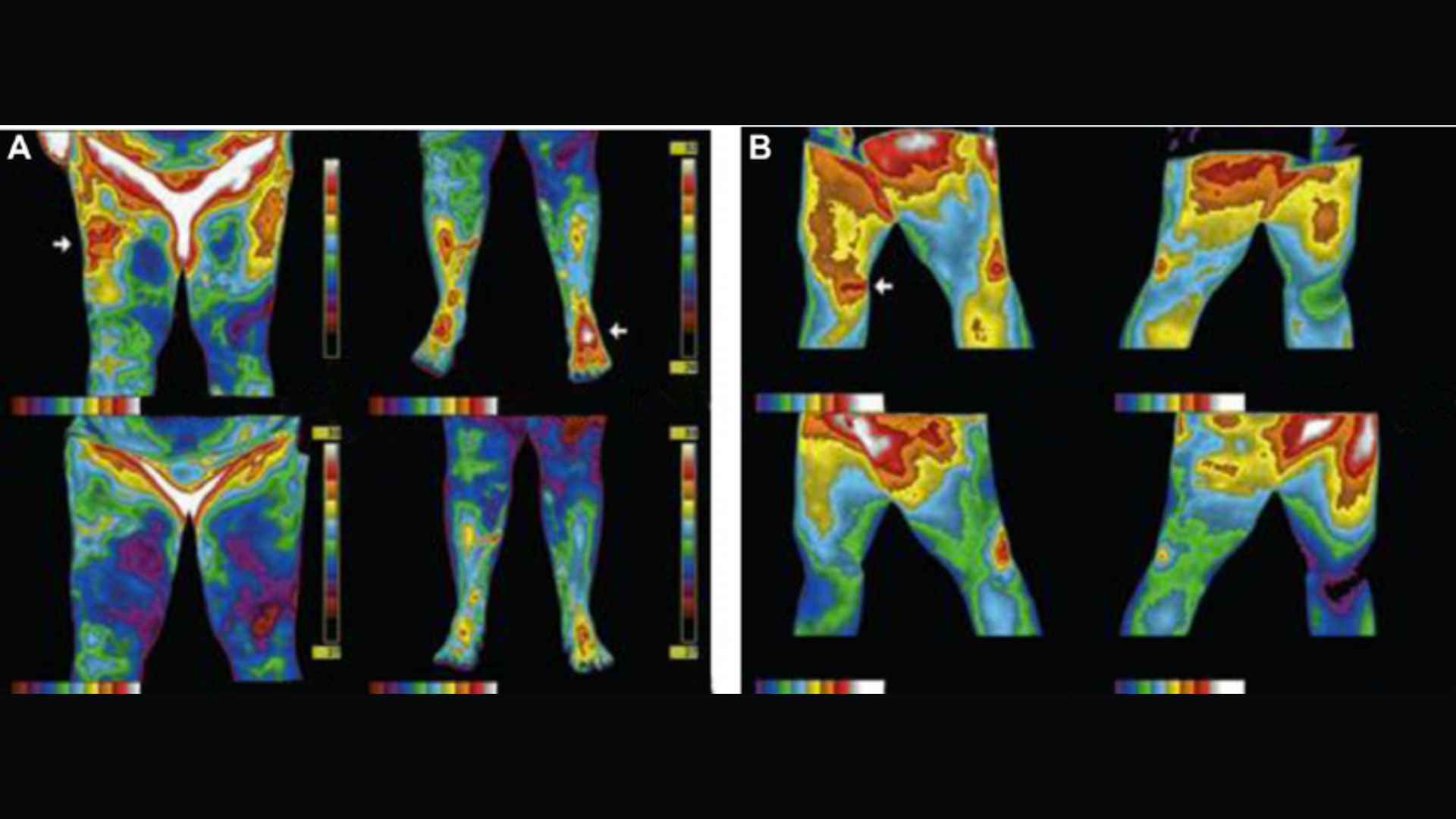Does Grounding Help With Inflammation?
Yes, grounding techniques have shown promise in reducing inflammation. By connecting the body to the earth's natural electric charge, grounding may modulate the inflammatory response, promote healing, and prevent chronic inflammatory and autoimmune diseases. Check the evidence below.
Evidence Rating: Moderate

The overall rating for the potential benefits of grounding for inflammation is considered moderate. The available scientific studies provide promising evidence of the potential benefits of grounding in reducing inflammation and promoting overall well-being.
Get Grounded Now!
Great Deals on the BEST Grounding Sheets
However, the current body of research is still limited, and further studies are needed to establish the effectiveness, optimal methods, and long-term implications of grounding for inflammation.
Pros:
- Potential Anti-Inflammatory Effects: Grounding techniques have shown promising potential in reducing inflammation, as indicated by the observed changes in inflammatory markers and immune responses.
- Natural and Accessible: Grounding is a simple practice that involves connecting with the Earth's energy, making it a natural and accessible approach for individuals seeking to manage inflammation.
- Integrative Approach: Grounding can be incorporated as part of an integrative approach to inflammation management, complementing other therapeutic strategies and lifestyle modifications.

Cons:
- Limited Research: While the available studies provide valuable insights, the research on grounding for inflammation is still relatively limited. More extensive research is needed to establish the efficacy and long-term effects of grounding, specifically for inflammation.
- Lack of Standardization: There is a need for standardized protocols and guidelines for grounding practices to ensure consistency in application and assessment of outcomes.
- Individual Variations: The response to grounding may vary among individuals, and not everyone may experience the same level of benefit in terms of inflammation reduction.
Related Articles:
Does Grounding Affect Sleep Quality?
Does Grounding Affect Energy Levels and Reduce Fatigue?
Does Grounding Detox Your Body?
Do Grounding Detox Symptoms Exist?
Scientific Studies
Multiple scientific studies have investigated the effects of grounding on inflammation, providing valuable insights into its potential as an anti-inflammatory remedy.
One study examined the effects of grounding on inflammation, immune responses, wound healing, and chronic inflammatory and autoimmune diseases.
The study revealed measurable differences in the concentrations of white blood cells, cytokines, and other molecules associated with the inflammatory response.
Grounding demonstrated the ability to reduce pain, alter circulating neutrophil and lymphocyte levels, and influence various chemical factors related to inflammation, offering relief and improving inflammation-related symptoms (1).
Another study (Study 2) emphasized the significance of grounding in integrative and lifestyle medicine strategies. It highlighted the profound effects of grounding, including inflammation, pain, and stress reduction.
It also improves blood flow, insomnia, and overall vitality. The study advocated grounding as a simple yet powerful addition to preventive and alternative healthcare approaches, offering relief from inflammation and promoting well-being (2).

Other researchers explored the effects of grounding on inflammation, immune responses, and wound healing. The research presented hypotheses explaining the observed effects based on electronic aspects of cell and tissue physiology, biology, biophysics, and biochemistry.
It also highlighted the potential of grounding to modulate the immune response and reduce pain associated with delayed onset muscle soreness (DOMS), contributing to improved inflammation management (3).
Grounding was also recognized as a universal anti-inflammatory remedy. The study underscored the importance of grounding in preventing inflammatory illnesses and its significant impact on public health.
It emphasized the correlation between inflammation and various diseases, highlighting grounding as a valuable approach to address the root cause and alleviate inflammation-related symptoms (4).
Results of these studies collectively support the potential of grounding to provide relief, improve circulation, and reduce inflammation-related symptoms such as swelling and tension.
Grounding shows promise in alleviating inflammation and other associated conditions, offering an accessible and natural approach to promoting well-being and managing inflammation-related concerns.
Further research is needed to expand our understanding of grounding mechanisms and its full potential in the realm of inflammation management.

The available scientific studies suggest that grounding holds promise as an effective anti-inflammatory remedy for the human body, offering a wide range of health benefits. In addition to modulating the inflammatory response and reducing pain, grounding has shown the potential for improving heart rate, blood pressure, digestion, respiratory function, and overall immune system health.
Grounding techniques, including the use of grounding mats, patches, or shoes, help provide direct contact with the Earth's surface, resulting in beneficial effects on inflammation. The modulation of the inflammatory response, reduction in pain, and the influence on various markers associated with inflammation are some of the notable results observed.
Grounding offers a convenient and accessible method for people to experience the positive effects of connecting with the Earth's energy. Whether it's walking barefoot on the beach or utilizing grounding systems indoors, incorporating grounding practices into an inflammation management routine may provide individuals with an additional means to promote overall well-being and support a healthy inflammatory response.
While more research is needed to fully comprehend the mechanisms and long-term effects of grounding, consulting with healthcare professionals and exploring grounding as part of an integrative approach to inflammation management can offer individuals a holistic approach to enhancing their health and well-being.
Get Grounded Now!
Great Deals on the BEST Grounding Sheets
References
1. Oschman, James L, et al. “The Effects of Grounding (Earthing) on Inflammation, the Immune Response, Wound Healing, and Prevention and Treatment of Chronic Inflammatory and Autoimmune Diseases.” Journal of Inflammation Research, 24 Mar. 2015, www.ncbi.nlm.nih.gov/pmc/articles/PMC4378297/.
2. Author links open overlay panelWendy Menigoz a, et al. “Integrative and Lifestyle Medicine Strategies Should Include Earthing (Grounding): Review of Research Evidence and Clinical Observations.” EXPLORE, 14 Nov. 2019, www.sciencedirect.com/science/article/pii/S1550830719305476.
3. Full Article: The Effects of Grounding (Earthing) on Inflammation, The ..., www.tandfonline.com/doi/full/10.2147/JIR.S69656. Accessed 12 July 2023.
4. Sinatra, Stephen T, et al. “Grounding - the Universal Anti-Inflammatory Remedy.” Biomedical Journal, Feb. 2023, www.ncbi.nlm.nih.gov/pmc/articles/PMC10105021/.

